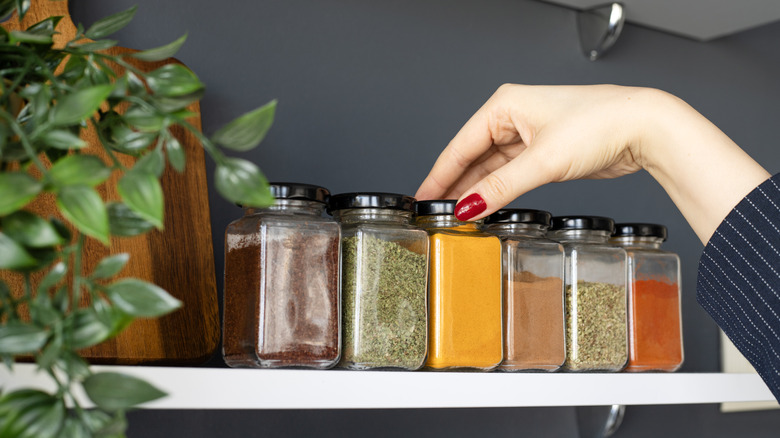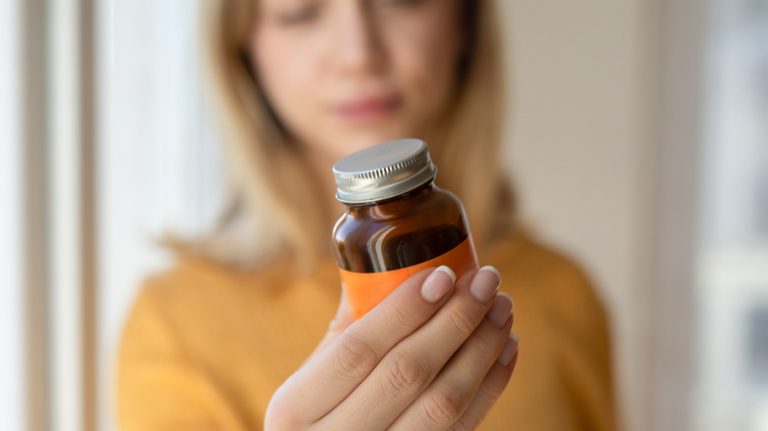
Years ago, turmeric might have sat unused on your spice rack, only brought out for special recipes like curries and soups. Nowadays, turmeric is enjoying a resurgence as a wellness essential. Esteemed in Ayurvedic medicine for its healing abilities, turmeric has been utilized for over 4,000 years to tackle issues such as arthritis, digestive disturbances, and abdominal discomfort, as detailed in the book “Herbal Medicine: Biomolecular and Clinical Aspects” (via National Library of Medicine).
In today’s world, you can purchase ground turmeric in the spice section and fresh turmeric root in the produce section. It’s also available on your supplement shelves to harness more of its potent anti-inflammatory and antioxidant properties. However, while it can be advantageous to incorporate turmeric daily, it’s just as simple to overconsume it.
“Excessive turmeric can aggravate the digestive tract and lead to symptoms like nausea, diarrhea, bloating, or even stomach cramps,” stated Fitness and Nutrition Advisor at BarBend, Dr. Chris Mohr, in a NCPIC interview. “This mainly occurs because curcumin, the active ingredient in turmeric, can stimulate the gut lining and boost acid production.”
Turmeric’s Side Effects

While it’s unlikely you’ll suffer from diarrhea or gastrointestinal upset from adding powdered turmeric to your meals or sipping turmeric tea, issues might arise when consuming a turmeric extract supplement. “With larger doses, turmeric could also hasten the movement of food through your digestive tract, potentially leading to loose stools,” Mohr explained. “Individuals with sensitive stomachs or acid reflux may notice these effects even at lower doses.”
If you juice turmeric root with other vegetables, your body might not absorb all of turmeric’s beneficial compounds. Turmeric supplements often incorporate piperine (an antioxidant present in black pepper) to enhance absorption. However, these highly bioavailable forms of turmeric may be harmful to the liver in large amounts, according to LiverTox (via National Library of Medicine). Such toxicity generally doesn’t occur after just one or two doses but could develop over several weeks. Symptoms of liver toxicity from turmeric include fatigue, nausea, and dark urine.
Individuals with gastroesophageal reflux disease (GERD), gallbladder problems, liver disease, or iron deficiencies should use turmeric supplements cautiously. Turmeric should also be avoided if you’re on injectable blood thinners. “It’s wise to follow the guidelines and remember that more isn’t better,” Mohr advised. “And similarly, consult your healthcare provider to ensure there’s no risk of interactions with other medications you might be taking.”
Some Benefits of Turmeric

Researchers have examined the efficacy of turmeric and its curcuminoids in alleviating arthritis pain. A 2020 review in Nutrition Today analyzed 20 clinical trials and found that turmeric or its compounds alleviated stiffness and walking pain similarly to over-the-counter pain medications. Some studies even noted that individuals taking turmeric required fewer prescription pain drugs. However, many of these studies were small or lacked strict controls.
The same review also explored how turmeric might aid conditions like high blood sugar, high cholesterol, obesity, and type 2 diabetes. Small studies indicated that turmeric can decrease blood sugar levels and insulin resistance in individuals with prediabetes. Those with non-alcoholic fatty liver disease might also experience enhancements in blood sugar and cholesterol after consuming turmeric. While turmeric may serve as an adjunct to medication for type 2 diabetes, the results have been inconsistent when used alone.
(Read how turmeric may improve your mental health.)
As you age, you might consider using turmeric to support brain blood flow and oxygenation. A 2021 study in the International Journal of Food Sciences and Nutrition discovered that taking turmeric extract two hours before exercise increased brain oxygenation and blood volume during physical activity. Relatedly, turmeric may also aid in reducing post-exercise pain. A 2021 article in Critical Reviews in Food Science and Nutrition reviewed 11 studies and found that curcumin supplementation decreased post-exercise inflammation and oxidative stress while promoting recovery. Participants also reported no side effects and noted improvements in gastrointestinal health.




